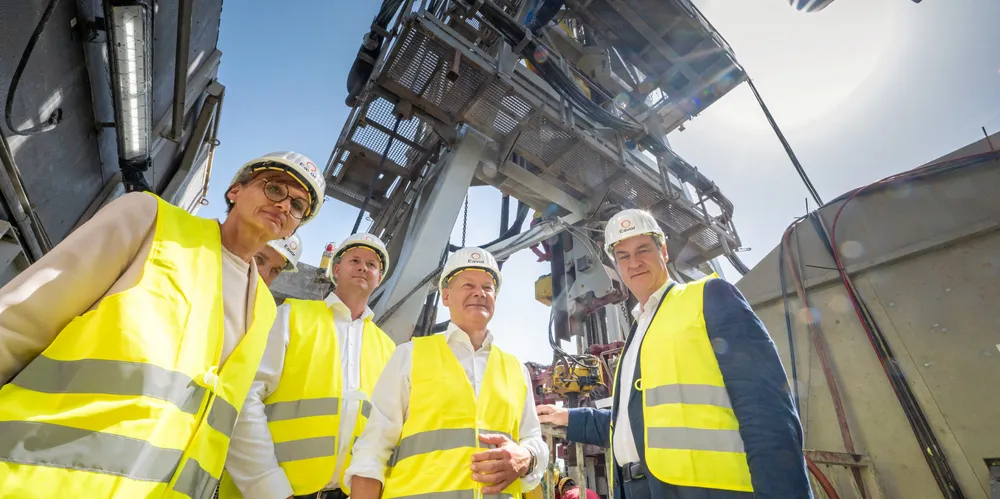Eavor Loop visit | Scholz pledges 10 times more geothermal heating by 2030
Goal is to 'tap into as much geothermal energy as possible', Chancellor says as he visits construction site of pioneering closed-loop deep geothermal plant by Canadian start-up Eavor
